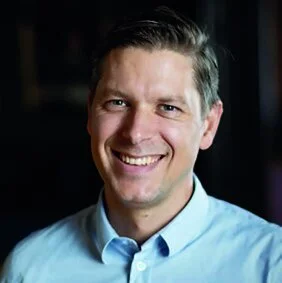Swedish Neutron Week was a great success to grow and engage the community ahead of the opening of ESS
Swedish Neutron Week is an important yearly event to gather neutron researchers before the opening of ESS, the European Spallation Source, in 2023. Martin Sahlberg, Director of SwedNess, emphasises that it takes time to build a community that can make use of the huge potential offered by the new large scale research facility in Lund, Sweden.
– It was a great event, with more than 180 registered participants. You can tell that people have figured out to handle the online format by now. It is also easier for people who are less active neutron users to join. You do not have to be an expert to join a session, since the barrier is a bit lower than at a physical conference.
A pivotal time for neutron research
Martin Sahlberg says that now is pivotal time for neutron users in Sweden, ahead of the opening of the ESS. It is important to gather research and connect users so that the community is ready to step up when the facility opens. A recent bibliometric analysis of neutron research produced by SNSS, the Swedish Neutron Scattering Society, shows that both users, and number of publications have increased since 2017.
Martin Sahlberg is a professor at the Department of Chemistry at Uppsala University and Director of SwedNess. He is also core group member of the New Materials theme.
– To build a large and vibrant community, that will be able to use ESS when it is put into use, we need to create arenas for collaboration and knowledge exchange. It is also important to push people into start exploring the techniques so we can grow the community even more.
– Today, almost all neutron users also use x-rays but it is not the opposite way around yet. This is something we are working towards, because theoretically it should not be that difficult to take the steps into neutrons.
Not least is it important for researchers, especially new users to strike up collaborations with the scientists that operate the instruments at the ESS says Martin Sahlberg. These scientists have great technical and research knowledge of value to all of the community.
– There is so much happening in neutron research at the moment that we need to capitalise on. Personally, I think the development towards new ways to collect data in “event mode” opens up a lot of new possibilities. The developments of 2D diffraction techniques are also interesting, as well as the possibilities offered by machine learning.
The next Swedish Neutron Conference, in 2022, will take place physically. For that event, Martin Sahlberg hopes that even more people will join than this year.
– In spite of digital formats being more inclusive, there’s also a need to meet in person, to discuss and have more informal discussions. I also hope that we will be able to conduct physical experiments next year. I have missed that aspect of research immensely! he concludes.
About Martin Sahlberg and SwedNess
Martin Sahlberg is a professor at the Department of Chemistry at Uppsala University and Director of SwedNess. SwedNess is a graduate school providing research training in neutron scattering and is operated by six Swedish universities, with the aim to strengthen Sweden's long-term competence and competitiveness within the area. The school is fully funded by The Swedish Foundation for Strategic Research (SSF).

